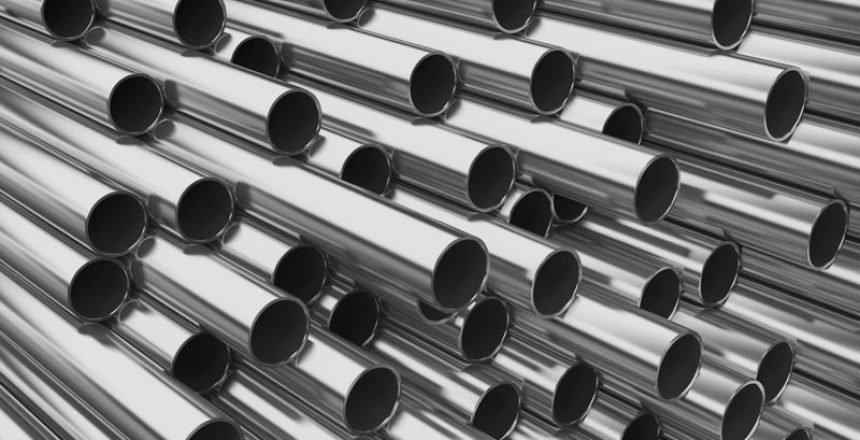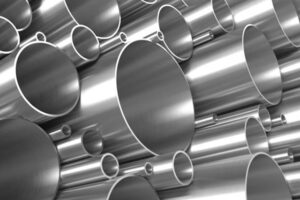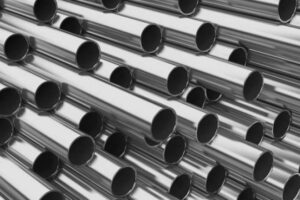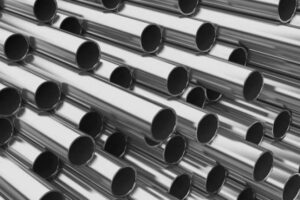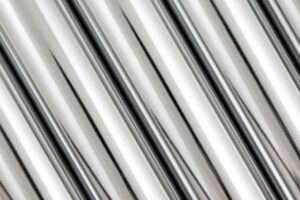Alloy 020 & its Uses
Alloy 020 has dependable corrosion resistance in environments with sulfuric acid, and the ability to withstand corrosive environments, such as chlorides and nitric acid, is also useful. The main difference between Alloy 20 and Alloy 21 is their carbon content: while Alloy 20 is low in carbon, Alloy 21 is a high-carbon alloy and thus corrosion resistant.
What is alloy 020
Alloy 020 is a very strong and durable alloy made from iron, several elements of chromium, molybdenum, and nickel. This alloy has a high melting point, making it ideal for industrial tools because it can easily withstand high temperatures for long periods.
Alloy 020 is a permanent, low-friction, high-strength brazing alloy at temperatures 1400-2150�F. The alloy does not embrittle and has good thermal shock resistance. This alloy cannot be soldered.
Mechanical properties
Alloy 020 is stronger than steel yet very light in weight. It is popular for use in aircraft because of its strength to weight ratio. Heat treatment can provide yield strengths of up to 300 MPa, resulting in parts that will last a long time.
Alloy 020 provides a great combination of yield strength and hardness, making it ideal for applications that require parts that are not too brittle and not too soft. Alloy 020 offers superior corrosion resistance to saltwater and most industrial chemicals. The alloy offers high strength in all proportions, good ductility, and has a good combination of formability, weldability, and fabricability.
Corrossion resistance
Alloy 020 has high corrosion resistance, outstanding functional characteristics, and unrivaled service life. It is harder than standard steel and is more resistant to corrosion. These properties provide great value and make Alloy 020 the ideal choice for automotive, light truck, and industrial applications.
Usually, nickel enhances the corrosion resistance of stainless steel, but here this property is enhanced by alloying it with other elements, such as chromium, which form insoluble compounds. The nickel-rich chromium phase is passive and prevents the aggressive behavior of nickel ions.
Tensile Properties
The tensile strength of alloy 020 is 620 MPa, 89.9 ksi. This material has Young’s modulus of 208 GPa, Poisson’s ratio of 0.26, and a density of 7.8 g/cm3. The tensile strength and durability of alloy 020 make it ideal for fabricating storage tanks, gas cylinders, manhole covers, heat exchangers, and even parts for nuclear power plants. If your application is particularly demanding, you can use alloy 020 that is fully stress relieved, over-aged, or with a vacuum, induction melting to meet your requirements.
Elongation
Alloy 020 breaks at 41%, a high elongation ratio makes it a terrific choice to show off solid and two-colored body jewelry. Best of all, its bright colors and lightweight make it a fun alternative to Titanium as well!
Alloy 020 also finds use as railway tracks. It is a good conductor of heat, making it a great material for places that entail electricity and heat usage.
Thermal properties
Alloy 020 is a family of high-strength nickel-chromium superalloys. It consists of tungsten and molybdenum as major alloying additions. These alloys have excellent strength in the temperature range from cryogenic to 1500F (815C), even at low temperatures. In addition, they possess high creep resistance at high temperatures and moderate strength retention at very low temperatures.
Alloy 020 is a reliable material in critical high-temperature services in the coke and petrochemical, power and energy, food processing, metals, and mining industries. Technologies including resistance heating, electrical resistance heating, induction heating systems, and friction stir welding are used to join this alloy.
Impact strength
While not as strong as metals, this new metal can offer the same impact strength or greater strength than many metals. This alloy has been shown to be up to 90% stronger than standard plastics.
It finds use in helmet creation and the aerospace industry. This metal is popular for manufacturing medical equipment and plastic cars, bicycles, and skateboards. It has even been used in the creation of knives. Builders use it in a range of large construction projects, including bridges and statues.
Fatigue Strength
Alloy 020 is in Class 2 and fits the I, S, and R creep curves for stress under 30 KSI. Its fatigue strength at 48 HRC, 1.5% offset is 105 ksi, and it has a rupture elongation of 8%.
The 020 Alloy is a popular alloy for bike tubing because it offers excellent fatigue resistance, most commonly found on higher-end bikes. It has been heat-treated to obtain the highest physical properties and to ensure that after hardening and tempering, there are no metallurgical or physical microsegregation phenomena in the grains of the material.
It is also very resistant to skin rotting and produces a close grain structure. This alloy will generally keep a clean appearance on the surface, even after long storage at high temperatures.
Creep and rupture
The yield and tensile strength of alloy 020 can drop by 12% when The alloy is used at 738 degrees. This is due to the thermal expansion of The alloy that causes a side effect known as plastic-yielding and a loss of ductility. While these properties can vary, the engineer needs to know the phase stability of alloys and the limiting temperature.
Alloy 020 can be cold worked or worked hardened, with careful heat treatments applied to maintain the right balance of strength and ductility in the finished part. The proper heat treatment will produce a hard but not brittle alloy while maintaining its weldability.
High-temperature applications
Among the biggest alloy 020, applications include the military and aerospace industries, where high temperatures are common. It has excellent corrosion resistance in high-temperature environments, with a melting point of over 2150F.
It has low thermal expansion and good mechanical properties, making it useful for high-temperature applications, including the furnace, and missiles, offshore oil risers, heat shields for moon vehicles, and rocket engines.
High corrosion environments
Alloy 020 is known for its high corrosion resistance, making it ideal for use in any high-corrosion industry. Recommended applications include the offshore oil and gas industry, the chemical processing and marine industries, as well as other high-corrosion environments.
It’s a good alternative to stainless steel when you need more corrosion resistance than a typical stainless steel alloy. It’s often used in pumps, blades, and similar components exposed to corrosive elements.
Process piping
Alloy 020 may contain up to 19.50% Ni. It exhibits good resistance to dezincification and stress-corrosion cracking in saltwater. It has excellent high-temperature strength, creep resistance at temperatures up to about 475 deg C, and good oxidation resistance in air, especially if stabilized. Its high mechanical strength and good weldability make it suitable for fabricating pipelines carrying sodium hydroxide solutions at elevated temperatures.
Machinability
Alloy 020 is an alloy with a unique combination of mechanical and optical properties because its primary constituent, nickel, has different solubility levels. The ratio dependency on other constituents of Alloy 020 also changes as a function of temperature. This alloy has very high strength while still being ductile and highly machinable, making it ideal for various applications, from small precision parts to large forgings and complicated castings.
Aircraft skin
Aircraft skin is a very important part of the structure of an aircraft because it supports the aircraft’s weight and must be able to resist the high temperatures generated by air friction and by heat generated by carrying different kinds of equipment.
It also needs to be lighter, stronger, and tougher to catch the wind. To accomplish these objectives, aircraft designers count on the lightweight, high-strength alloy 020. The use of alloy 020 in producing aircraft skin is due to its high strength and good corrosion resistance.
Auto parts
Alloy 020 is The alloy commonly used in the auto industry. Almost all auto parts have the percentage of alloy 020 series. This kind of alloy has good high-temperature resistance and excellent casting performance. The density is 8.8g/cm3.
Alloy 020 finds use in the manufacture of parts like the gas tank, exhaust system, water pump, oil pump, frame, etc. Alloy 020 is currently the most popular alloy of its kind, and the majority of the industry widely recognizes it.
Pharmaceuticals
With a hardenable welded construction process, alloy 020 can be used in demanding applications found in the pharmaceutical and food industries – both of which require superb wear resistance. Its micro-alloying additions create a uniform grain distribution that increases its abrasion resistance. This material has excellent mechanical properties and high ductility for higher resistance to impact than other stainless steel.
Marine, oil, and gas
Alloy 020 is a superior steel grade specifically designed for service in saltwater environments. This particular steel grade allows marine, oil, and gas industry offshore applications like drilling rigs or oil platforms to be exposed to the elements during operation without the risk of corrosion and pitting. The key properties of this alloy are its multiphase and austenitic structure which gives it superior resistance to corrosion, pitting, pre-stress, and cracks.
In a nutshell
Alloy 020 is one of the most popular alloys used in the metal industry. It is an artificial alloy and is composed of various metal ingredients. It is also known as UNS N02200, and its main use is for machine parts and making tools. It is highly corrosion resistant and tough enough to withstand high pressure and high-temperature conditions.

